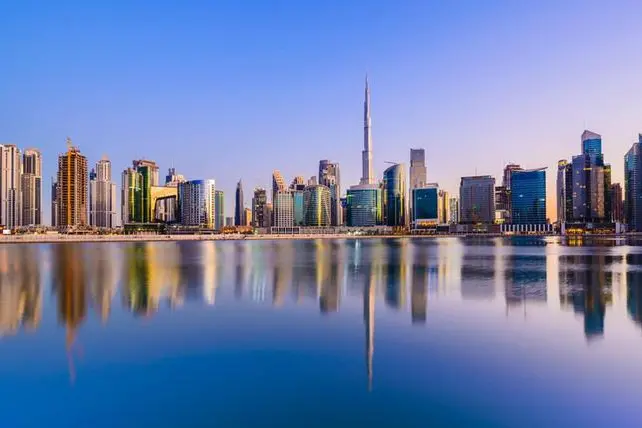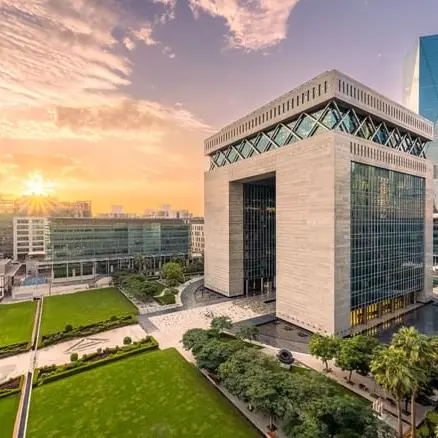PHOTO
Dubai-headquartered retail and commercial property developer Majid Al Futtaim has set its sights on achieving circularity across the group's operations in the next ten years.
Chief Sustainability Officer Ibrahim Al-Zu'bi said Circular Economy is part of Majid Al Futtaim's group-wide sustainability strategy.
"By 2030, all our operating companies will have circularity at the core of their [business] operations," he said.
Some of the group's 2030 targets include embedding circular economy principles into its procurement process in 2021, establishing a system of circular start-ups in 2022, and phasing out single-use plastics in operations by 2025.
Strategy
Unlocking Value, as the Circular Economy strategy is called, was formally launched in December last year during a virtual forum.
Al-Zu'bi explained that the group's circular economy vision is underpinned by two elements: Changing the eco-system by engaging with suppliers, customers, internal stakeholders, and government, and integrating lifecycle thinking into business planning and decision-making.
“This will allow us to link different elements of the value chain while keeping in mind three key questions: how to maximise the value of waste; how to procure with circularity in mind, and how to use resources effectively.”
“We started data collection in 2018 and continued throughout 2019 and created a baseline for our waste across our operating companies,” he said.
In 2019, a Strategy& report said that the GCC countries could save $138 billion by 2030 by adopting a circular economic model.
Majid Al Futtaim’s strategy formulation has been guided by a four-pronged approach of assessing the existing situation to map resource flows and stakeholders, identifying areas with the largest impact on resource use; establishing targets, and lastly, deciding actions and measures of success.
“For example, for the KPI of procurement and waste data review, we identified resource inputs, outputs, and disposal routes so that we know what material we use, what is our waste, where they go and how we can use this data to have recycling and lifecycle targets.”
Circular steps
Existing circular economy initiatives included a reverse vending machine for single-use plastic bottles at one of its malls, which has diverted more than 800 bottles per week or the equivalent of 500 kilogrammes of plastic from the landfill; recycling of 3.5 tonnes of used soap waste annually from one of its hotel properties for distribution among communities with limited access to basic hygiene amenities, and recycling more than 100,000 litres of grease from the restaurants and fast food chains at its Vox Cinemas chain into green fuel.
“In our properties business, we linked our circular economy strategy to our net positive strategy. We started using 50 percent of GGBFS, a cement-like material made from ash, in construction, which contributes to our circularity since it has low-embedded carbon. We used this in building City Centre Masdar.”
Al-Zu'bi pointed out that the properties business has also adopted modular construction and building for flexibility. Meanwhile, in the retail business, initiatives are underway to track food waste and investigate the order frequency and market trends to reduce food waste. The group is eyeing a 50 percent reduction in food waste by 2030.
The Majid Al Futtaim official said the company is engaged with Tier 1 and Tier 2 suppliers as part of its responsible procurement policy.
“In construction, we would never have achieved 86 percent waste diversion from landfill without the involvement of our Tier 1 suppliers,” he said.
Enablers in place
A growing urbanisation that facilitates the logistics of closing resource loops, an evolving sharing economy and stringent government regulations in the areas of material use and waste are strong enablers of a business case for circular economy, Al-Zu'bi noted.
He also pointed out that technology advancements enable companies to better capture and maximise resource value.
“For example, you can use blockchain to trace materials, allowing for reverse material flows and better capture of data,” he said, adding, that the group is working on blockchain applications for its businesses.
He also noted that post COVID-19 period is “the perfect time” to accelerate the global transition towards circularity with governments focussing on green recovery to revive economies battered by the pandemic.
Al-Zu'bi said the company is coming up with an annual market review for the circular economy to identify business opportunities for all the different stakeholders.
"These trends provide present opportunities for the business. For investors, the circular economy is a great opportunity in terms of return on investment while doing good for the environment."
(Reporting by Anoop Menon; Editing by Seban Scaria)
Disclaimer: This article is provided for informational purposes only. The content does not provide tax, legal or investment advice or opinion regarding the suitability, value or profitability of any particular security, portfolio or investment strategy. Read our full disclaimer policy here.
© ZAWYA 2021





















